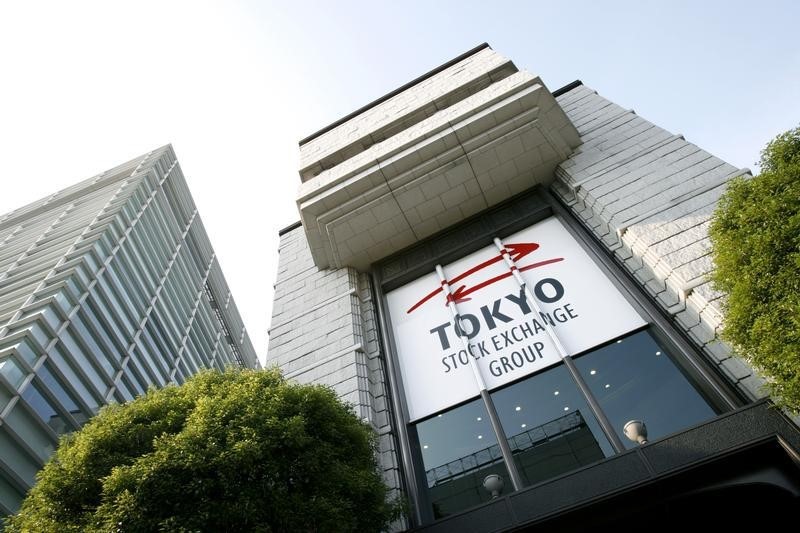This post was originally published on this site
https://i-invdn-com.investing.com/news/LYNXMPEA620A7_M.jpg
Investing.com– Most Asian stocks recovered marginally from recent losses on Tuesday, while Japanese markets lagged on weak results from investment giant Softbank Group (TYO:9984).
The Nikkei 225 index slumped nearly 1%, with Softbank among the worst performers after logging a record loss in the April-June quarter. Shares of the investment firm were down 7.5% by 0045 ET (0505 GMT).
Hong Kong’s Hang Seng Index rose the most among its peers, up 1% as heavyweight technology stocks staged a recovery from recent lows.
The ‘BAT’ trio- Baidu (NASDAQ:BIDU), Alibaba (NYSE:BABA), and Tencent Holdings Ltd (HK:0700) – rose between 0.5% and 2.5%.
Regional market shrugged off a weak overnight cue from Wall Street, which ended largely flat after a volatile session. Investors weighed exposure to both growth and value sectors ahead of key inflation data from the United States on Wednesday.
U.S. CPI is expected to come in at 8.7% for July, down slightly from the 9.1% seen in the prior month. While such a dip will indicate that inflation has likely peaked, inflation will still remain at its highest level in forty years.
The Federal Reserve is expected to factor the CPI reading into its plans to raise interest rates in September.
China’s Shanghai Shenzhen CSI 300 index rose 0.3%, ahead of an inflation reading from the country due on Wednesday. The Shanghai Composite Index rose 0.3%.
In contrast to rising prices across the globe, China is expected to see only a mild rise in CPI inflation. Producer price inflation is expected to have dropped in July, owing to several COVID-19 lockdowns imposed earlier in the year.
Australia’s ASX 200 index lagged its Asia-Pacific peers, rising only 0.1% after a private survey showed consumer sentiment at its lowest level since the 2020 COVID-19 pandemic. A mix of rising interest rates and overheated inflation drove the reading.
Philippine stocks fell 0.3% after government data showed that the country’s economy grew at a slower-than-expected pace in the second quarter. But the reading was within the central bank’s target range, raising uncertainty over whether it will hike interest rates further to combat inflation.

